
Izabela Filipiak (born 1961 in Gdynia) is a Polish writer, an essayist, a columnist, and a scholar.

Izabela Filipiak (born 1961 in Gdynia) is a Polish writer, an essayist, a columnist, and a scholar.
She debuted in the beginning of the 90s as one of the most distinct figures of Polish literary life. [1] In her short stories and essays, she promoted the new literature in democratic Poland as open to voices previously excluded from cultural discourse. Her novel Absolutna Amnezja published in 1995, critiques the communist past from the point of view of socially maladjusted young women. The book mixes satirical representation of authoritarian schools and dysfunctional families with historical events from the pre-Solidarity period and discusses education as breaking the girls' spirits through an elaborate application of double standards. When the critics attacked the novel, Maria Janion, the renowned literary historian, came to its rescue, [2] thus launching the major debate about the absence of feminism in the Polish cultural tradition. [3]
Starting in the late 90s, Filipiak was teaching creative writing classes at the gender studies department of Warsaw University and in the College of Arts at Letters at Jagiellonian University in Kraków. She published a creative writing handbook, Tworcze Pisanie dla Mlodych Panien, which she addressed mainly to women writers and men inspired to embrace their inner fem. She wrote an introduction to the first translation of Virginia Woolf's A Room of One's Own . [4] In 1997, she came out as a gay in the Polish edition of Cosmopolitan and on national TV. She claimed that coming out improved both her personal life and her career, as she began to write columns for top shelf magazines. Starting in 2000, her tone became more critical, and she began to comment on the rise of populism and homophobia in Poland. These columns were eventually published in the collection Kultura Obrazonych, but by 2003 Filipiak lost all her press assignments. She connects this turn of events with the mobilization of the Christian right as Poland entered the European Union. [5]
In 2003 Filipiak left for the University of California at Berkeley for an appointment as a visiting scholar at the Institute of Slavic, East European, Eurasian Studies, and an affiliated scholar at the Beatrice M. Bain Research Group. [6] In 2005, supported by her mentor Maria Janion, she received her PhD from the Polish Academy of Sciences in Warsaw, but her thesis about political and artistic applications of transgender figures in East European modernism was considered subversive by established scholars. Between 2002 and 2006, Filipiak published a volume of poetry (Madame Intuita), a play (The Book of Em) based on the life of Maria Komornicka, a haunted figure of Polish modernism, and Absolutna Amnezja went through a third printing. Still excluded by the mainstream, the writer decided to stay in the U.S. In 2009, she received an MFA in fiction from Mills College in California, then returned to Poland upon accepting a position in the American Studies Department at Gdańsk University. [7]
Since 2010, Filipiak has been the president of Writers for Peace Foundation whose goals are supporting minority voices and maintaining a network of artists concerned with issues of marginalized groups. In the fall of 2010, Writers for Peace confronted SKM, the local commuter train, regarding the lack of accessibility. [8]
Filipiak specializes in the subject of exclusion, displacement, grief (and the lack of formulas for its public expression for gay people), documenting styles of radical resistance to social and cultural exclusion, irony and black humor, debt, war and privatization. [9]

Zygmunt Wojciechowski was a Polish historian and nationalist politician. Born in 1900 in then-Austria, he obtained a doctorate from medieval history at Lviv University. In 1925 he moved to Poznań, where he became a full professor in 1929. In 1934-1939 he became politically involved with the nationalist party Endecja. During occupation of Poland by Nazi Germany he worked in Polish underground opposing German genocide of Poles by providing underground teaching, which was banned by German state and worked on future concept of Polish borders that would provide Poland with safety against any further German aggression. He supported an alliance with Soviet Union and after the war he continued to work as historian in People's Republic of Poland and headed Western Institute that studied former Polish territories recovered from Germany and history of Polish-German relations. He was a recipient of Commander's Cross and Officer's Cross of Order of Polonia Restituta.
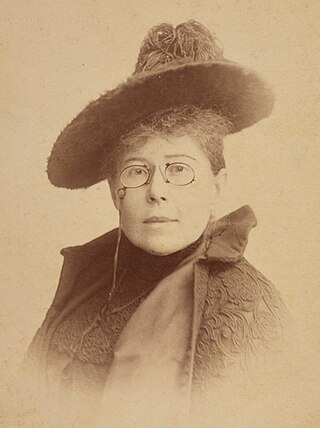
Maria Konopnicka was a Polish poet, novelist, children's writer, translator, journalist, critic, and activist for women's rights and for Polish independence. She used pseudonyms, including Jan Sawa. She was one of the most important poets of Poland's Positivist period.

Olga Nawoja Tokarczuk is a Polish writer, activist, and public intellectual. She is one of the most critically acclaimed and successful authors of her generation in Poland; in 2019, she was awarded the 2018 Nobel Prize in Literature as the first Polish female prose writer for "a narrative imagination that with encyclopedic passion represents the crossing of boundaries as a form of life". For her novel Flights, Tokarczuk has been awarded the 2018 Man Booker International Prize. Her works include Primeval and Other Times, Drive Your Plow Over the Bones of the Dead, and The Books of Jacob.
Antonina Kłoskowska, was a Polish sociologist. In her work, she focused on the sociology of culture. Kłoskowska taught at the universities Łódź (1966-1977) and Warsaw (1977-1990). She was a member of the Polish Academy of Sciences (PAN) since 1973 and worked in its Institute for Political Studies since 1990. Since 1983, she edited the journal Kultura i Społeczeństwo. From 1989 until 1993, she was the president of the Polish Sociological Association. With Władysław Markiewicz and others, Kłoskowska co-edited a multi-volume Polish complete edition of Bronisław Malinowski's works which appeared 1984-1990.

Maria Janion was a Polish scholar, literary theorist and critic, as well as a feminist. She was a professor at the Institute of Literary Research of the Polish Academy of Sciences, specialising in literary Romanticism.

Jerzy Prokopiuk was a Polish anthroposophist, gnostic, philosopher, and translator of literature, born in Warsaw. He translated into Polish works written by Aldous Huxley, Rudolf Steiner, Carl Gustav Jung, Max Weber and many other authors. He died from COVID-19 aged 90.
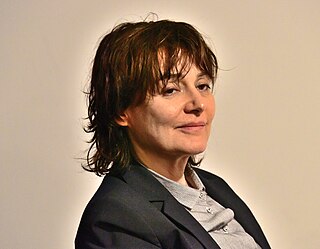
Kazimiera Szczuka is a Polish historian of literature, literary critic, feminist, journalist and television personality, known from the Polish edition of The Weakest Link.

Mosina is a town in Poznań County, Greater Poland Voivodeship, Poland, about 20 km south of Poznań, with 12,107 inhabitants (2004). The Mosiński Canal runs east and west through the town, and joins the Warta River just to the east.

Teresa Sławomira Torańska was a Polish journalist and writer. She was perhaps best known for her award winning monograph, Oni.
Dobroniega Ludgarda of Poland was a Polish princess, Margravine of Lusatia by marriage to Theodoric I, Margrave of Lusatia.

Stanisław Jachowicz was a Polish educator, poet and children books author. He is regarded as the founding father of children's literature in Poland.
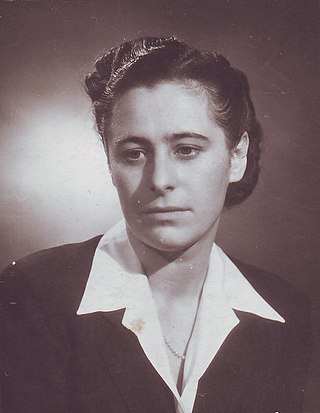
Zofia Chądzyńska or Sophie Bohdan, was a Polish writer and translator of the Iberoamerican literature. Her first book was published in French under a pseudonym of Sophie Bohdan, entitled "Comme l'ombre qui passe", Publisher: Paris : Calmann-Lévy, 1960. Later she was publishing in Polish under her original name Zofia Chądzyńska.

Maria (Marianna) Trzcińska was a Polish judge employed for over 30 years in the People's Republic of Poland at the Chief Commission for the Investigation of Nazi Crimes in Poland. She investigated and researched German World War II crimes in Poland.
Jolanta Pytel is a Polish poet, writer and promoter of literary life in Zielona Góra.
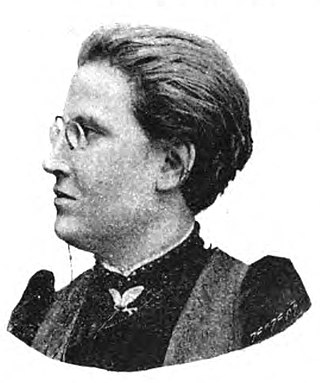
Paulina Kuczalska-Reinschmit was a Polish social reformer and feminist activist, publisher and writer. She campaigned for women's right to vote in Poland, which was then partitioned between Russia, Germany and Austria-Hungary.
Jolanta Maria Żyndul is a Polish historian, a specialist on modern Jewish history and Polish-Jewish relations in 19th and 20th century.

Izabela Zubko is a Polish poet.
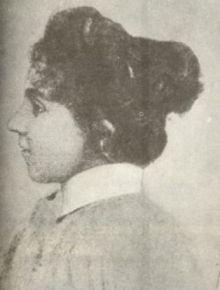
Piotr Odmieniec Włast was a Polish writer of Young Poland period, translator and literary critic. Włast never denied nor rejected male identity, in contrast to the female one.

Anna Janko, is a Polish poet, writer, columnist and literary critic.